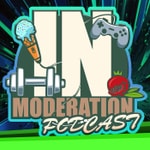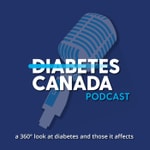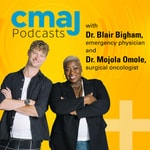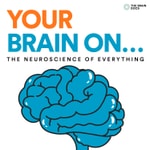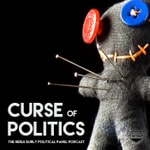The Doc Talk Podcast – Détails, épisodes et analyse
Détails du podcast
Informations techniques et générales issues du flux RSS du podcast.

The Doc Talk Podcast
Dr. Sheila Wijayasinghe and Dr. Shazma Mithani
Fréquence : 1 épisode/13j. Total Éps: 18

Dr. Shazma Mithani and Dr. Sheila Wijayasinghe have spent years navigating the health care system. Not just as doctors for their patients, but as moms for their kids, and patients themselves. And they know it's not always straightforward.
Every two weeks they'll take a real question from a real patient, and provide in-depth answers with a clear path to action, with help from other trusted experts.
No jargon. No time wasted. Just real talk about real issues from two doctors who've seen it all. And they'll give you the inside scoop on how to navigate the health care system like a pro.
This is The Doc Talk.
Classements récents
Dernières positions dans les classements Apple Podcasts et Spotify.
Apple Podcasts
🇨🇦 Canada - healthAndFitness
06/06/2025#88🇨🇦 Canada - healthAndFitness
05/06/2025#99🇨🇦 Canada - healthAndFitness
04/06/2025#77🇨🇦 Canada - healthAndFitness
21/05/2025#80🇨🇦 Canada - healthAndFitness
20/05/2025#52🇨🇦 Canada - healthAndFitness
19/05/2025#42🇨🇦 Canada - healthAndFitness
18/05/2025#33🇨🇦 Canada - healthAndFitness
17/05/2025#77🇨🇦 Canada - healthAndFitness
02/05/2025#92🇨🇦 Canada - healthAndFitness
23/04/2025#88
Spotify
Aucun classement récent disponible
Liens partagés entre épisodes et podcasts
Liens présents dans les descriptions d'épisodes et autres podcasts les utilisant également.
See all- https://menopausefoundationcanada.ca/
25 partages
- https://checkout51.app.link/e/K3yAUdFCUKb
22 partages
- https://www.diabetes.ca/
12 partages
- https://www.instagram.com/thatsleepdoc
11 partages
- https://www.instagram.com/thedoctalkpod
8 partages
Qualité et score du flux RSS
Évaluation technique de la qualité et de la structure du flux RSS.
See allScore global : 38%
Historique des publications
Répartition mensuelle des publications d'épisodes au fil des années.
Welcome to The Doc Talk!
mercredi 23 octobre 2024 • Durée 01:17
Welcome to The Doc Talk, a new podcast from Dr. Sheila Wijayasinghe and Dr. Shazma Mithani!
Get ready to join them as they answer your healthcare questions, and deep-dive into different medical topics with each episode.
They're here to make navigating the healthcare system a bit easier by informing you with what you need to know to get the care you need.
Launching mid-November, 2024.
1. Respiratory Season Overview
mardi 12 novembre 2024 • Durée 32:26
Welcome to episode 1 of The Doc Talk Podcast! This episode is an overview of respiratory season.
Key Viruses and the Illnesses They Cause
- Influenza A (H1N1):
- Symptoms: Fever, chills, cough, muscle aches, fatigue.
- Complications: Pneumonia, exacerbation of asthma or heart conditions
- RSV (Respiratory Syncytial Virus):
- Symptoms: Runny nose, cough, wheezing, reduced appetite.
- Complications: Bronchiolitis, severe respiratory distress in infants, and asthma exacerbations
- COVID-19:
- Symptoms: Fever, fatigue, loss of taste/smell, cough, and shortness of breath.
- Complications: Long COVID, pneumonia, myocarditis
- Rhinovirus (Common Cold):
- Symptoms: Sneezing, congestion, mild cough.
- Complications: Can trigger asthma attacks, and post-viral coughs are common among children
Why Is My Child Always Sick?
- Children often encounter 8–12 illnesses in their first year of daycare, thanks to close contact and shared spaces. Daycares are perfect environments for virus transmission
- Early exposure to germs may build immunity. Kids in daycare tend to get sick less frequently once they reach school age.
- Common illnesses: RSV, conjunctivitis, gastroenteritis, hand, foot, and mouth disease
Pro Tip: Saline Drops Study
- A UK study found that children under six who used saline drops four times a day had symptoms resolve two days sooner. The same group’s family members also had reduced infections—a simple yet effective intervention!
Vaccination Update
- Vaccines for influenza, RSV, and COVID-19 are available and highly recommended for children, seniors, and high-risk groups to minimize severe outcomes
What About Supplements?
There is not supplements that has robust evidence on it’s effectiveness for preventing a viral infection or reducing the duration of symptoms. This includes echinacea, vitamin C, and vitamin D. Zinc and elderberry have mixed evidence and still need more data before we know for sure that they are helpful (or not).
Take-Home Prescription from the Doc Talk:
- Masks in crowded spaces.
- Hand hygiene: Wash hands often! Teach your kids how to wash their hands regularly.
- Ventilation: Use air purifiers and open windows.
- Stay home when sick to reduce spread.
- Vaccinate against flu, RSV, and COVID-19.
- Saline drops for potentially faster recovery from colds and reduced transmission.
Thanks to our sponsor, AirValent (airvalent.com), for supporting this episode. AirValent makes sleek CO2 monitors that can help you monitor how well your indoor space is being ventilated, so you can take action to improve it if the CO2 level is too high. AirValent has given us a special code for our listeners to get a discount on your device. Use code THEDOCTALK at checkout!
Disclaimer: The Doc Talk is for general information purposes only. This podcast is not intended to replace medical advice from your doctor. While we are doctors, we are not your doctor. Always speak to your own healthcare provider for questions related to your personal health needs.
1.5. What’s the Deal With Walking Pneumonia?
jeudi 14 novembre 2024 • Durée 04:00
Walking pneumonia is caused by a bacterial infection by Mycoplasma pneumoniae. It’s called walking pneumonia because of the mild to absent symptoms.
Even though the symptoms are mild, there are still things that can signal Mycoplasma pneumonia. The symptoms tend to build more slowly and can include cough, but also things like sore throat, runny nose fever, and fatigue, which often makes people think that they have a viral infection, rather than a bacterial pneumonia.
This particular bacteria tends to require a different antibiotic than the standard pneumonia antibiotics that are usually prescribed. This is why it’s important to see a doctor if you have any of the following:
- You have linger symptoms that continue after antibiotics are complete
- You have a fever that lasts more than 5 days or has returns after being absent for a few days
- You have a worsening cough, SOB, chest pain, or are coughing up blood
- Something doesn’t feel right or you’re worried
Disclaimer: The Doc Talk is for general information purposes only. This podcast is not intended to replace medical advice from your doctor. While we are doctors, we are not your doctor. Always speak to your own healthcare provider for questions related to your personal health needs.
2. Is it Perimenopause?
mardi 26 novembre 2024 • Durée 30:05
Introduction
In this episode of The Doc Talk Podcast, Dr. Shaz Mithani and Dr. Sheila Wijayasinghe delve into a topic that affects millions of women worldwide: perimenopause.
This phase of life often brings about various symptoms, from mood swings to cycle changes, and can sometimes leave women feeling like they're in uncharted territory. Today’s discussion is structured around Dr. Shaz’s personal experiences and questions, along with insights from Dr. Sheila, who brings her expertise in menopause to provide guidance, clarity, and support for women going through these transitions.
Episode Highlights
- Listener Question: Special thanks to Melissa Grelo, from the Social and Aging Powerfully with Melissa Grelo, for sending in today’s question about the symptoms of perimenopause, which she describes as impacting cycles, mood, energy, and more.
- What is Perimenopause?
- Overview of perimenopause as the transition phase before menopause.
- Symptoms: From mood swings, fatigue, and cycle changes to hot flashes, perimenopause presents in various ways.
- Differentiating early vs. late perimenopause.
- Typical age range and onset.
- Symptoms and How to Manage Them
- Discussing lifestyle changes that can alleviate symptoms, including consistent sleep, stress management, exercise, and diet.
- Non-hormonal options for mood support, like CBT and specific medications.
- Hormonal therapy for managing severe symptoms affecting quality of life that can include hormonal contraception, IUDs and menopause hormonal therapy.
- Contraception Considerations
- Why contraception is still essential in perimenopause, as fertility doesn’t end immediately.
- Birth control methods that can help manage symptoms and prevent pregnancy, such as low-dose hormonal contraceptives and IUDs.
- Addressing Perimenopause at Work
- Tips on discussing symptoms with employers and practical strategies for managing symptoms at work.
- Common Myths: Testing for Perimenopause
- Explanation of why blood tests aren’t typically useful in diagnosing perimenopause due to fluctuating hormone levels.
- Emphasis on tracking symptoms rather than relying on over-the-counter tests.
- Emergency Room Insights
- Dr. Shaz shares stories of patients experiencing symptoms like palpitations and other health concerns that can often be linked back to perimenopause.
Resources for Support
- Canadian Menopause Society: https://www.canadianmenopausesociety.org
- Menopause Foundation of Canada: https://menopausefoundationcanada.ca/
- Menopauseandu.ca
Sponsor Acknowledgment
Thanks to Always Discreet for supporting this episode. Always Discreet products are designed to keep you comfortable and confident through all stages of life, including perimenopause. When used correctly, Always Discreet can stop bladder leaks before they happen, and feel like you’re wearing no protection at all. Always Discreet has been there through all your life changes and will continue to support, educate and empower you during this new, upcoming phase.
Visit Always Discreet for your own product here: https://checkout51.app.link/e/K3yAUdFCUKb
Thank you for joining us on this week’s episode! Remember, this podcast provides general information and is not a replacement for medical advice. Always consult your healthcare provider for questions related to your health. Follow us on social media @TheDocTalkPod, and don’t hesitate to send in your questions for future episodes!
3. Is Colon Cancer on the Rise?
mardi 10 décembre 2024 • Durée 25:08
Colorectal Cancer: Screening, Prevention, and What You Need to Know
Welcome back to The Doc Talk Podcast! In this episode, Dr. Shazma Mithani and Dr. Sheila Wijayasinghe take a deep dive into the critical topic of colorectal cancer—the third most commonly diagnosed cancer and the second leading cause of cancer deaths in Canada. Whether you're curious about screening options or wondering how to reduce your risk, this episode has you covered.
Episode Highlights:
- Colorectal Cancer by the Numbers:
Learn key Canadian statistics and why early detection is crucial. Did you know the five-year survival rate for colorectal cancer can reach 90% with early screening? - The Importance of Screening:
Dr. Sheila shares insights from family medicine, emphasizing the power of proactive screenings like the FIT test and colonoscopy. Meanwhile, Dr. Shazma highlights the challenges of diagnosing colorectal cancer in the emergency room, often when symptoms have already progressed. - Screening Options Explained:
Discover the differences between the FIT test (a simple at-home stool test) and colonoscopy (a more comprehensive diagnostic tool). Learn who should get screened, how often, and what to expect. - Recognizing Symptoms:
Dr. Shazma and Dr. Sheila break down red flags such as rectal bleeding, unexplained weight loss, and changes in bowel habits—and when to seek medical attention. - Prevention Tips:
From diet and exercise to avoiding smoking and limiting alcohol, find out how you can reduce your risk of colorectal cancer. - Your Prescription for Health:
If you’ve been putting off your FIT test or colonoscopy, now is the time to prioritize your health. Take this episode as your sign to book that screening and take a step toward prevention.
Takeaways:
- Screening saves lives—talk to your primary care provider about when you should start.
- Colorectal cancer often develops silently, so don’t wait for symptoms to appear.
- Lifestyle changes, combined with regular screening, offer the best protection.
References:
- Canadian Cancer Society. Colorectal Cancer Statistics (2023).
- Public Health Agency of Canada. Colorectal Cancer Screening Guidelines.
- Canadian Task Force on Preventive Health Care. Colorectal Cancer Screening Guidelines (2016 Update).
BONUS: Aging Powerfully With Melissa Grelo Crossover Episode!
vendredi 20 décembre 2024 • Durée 01:00:37
On this week’s bonus episode of The Doc Talk, we do a crossover episode with Aging Powerfully with Melissa Grelo!
In this rapid-fire episode, we talk about misinformation and the importance of sourcing credible health information from social media. Melissa then hits us with rapid-fire listener questions on as many health topics as she can cover!
4. How to Avoid a Trip to the ER (Part 1)
mardi 7 janvier 2025 • Durée 36:27
The emergency room is one of the busiest places in healthcare—and while it’s there for when we need it most, wouldn’t it be great to avoid a trip altogether? In our first episode of 2025, we kick off a two-part series on how to stay out of the ER. This episode focuses on pediatrics, though many of the tips are just as relevant for adults. Dr. Shazma Mithani and Dr. Sheila Wijayasinghe dive into the ways we can protect ourselves and our loved ones from common, preventable emergencies.
As an experienced ER physician, Dr. Mithani shares valuable insights on the emergencies she sees most often and how to avoid them. From ingestion risks like button batteries and magnets to water safety, trampoline injuries, and head and spinal cord trauma, we discuss practical steps you can take to minimize risk.
While the topics may feel heavy at times, this episode is packed with actionable advice, empowering you with knowledge to stay safe. Prevention is truly the best medicine, and our hope is that this conversation helps you feel prepared and confident to keep your loved ones out of harm’s way.
Key Takeaways from This Episode:
•How to spot and prevent ingestion emergencies in kids (e.g., button batteries and magnets).
•Essential water safety tips to prevent drowning.
•The truth about trampolines and injury risks.
•Head injuries and spinal trauma: what to know and how to protect yourself.
•Effective ways to communicate safety practices with kids and loved ones.
This is an episode everyone needs to hear. Share it widely to help others in your life avoid unnecessary trips to the ER!
Listen now and join the conversation.
Subscribe to DocTalk Podcast for more insights every two weeks!
9. Why the Bladder Matters
mardi 18 mars 2025 • Durée 23:37
Episode Summary: In this episode of The Doc Talk Podcast, Drs. Shazma and Sheila tackle the critical and often under-discussed topic of bladder health. From the nuances of urinary tract infections (UTIs) to the dangers of kidney infections and urosepsis, the doctors break it all down. Plus, they shine a spotlight on incontinence, exploring its causes, social impact, and treatment options. Join us as we answer listener questions, debunk myths, and offer a practical prescription for maintaining bladder health.
Listener Question of the Week: Rachel asks about recurrent UTIs and when to worry about something more serious. Drs. Shazma and Sheila provide thoughtful insights and evidence-based advice to help Rachel and others struggling with this common issue.
Key Topics Covered:
- Understanding UTIs: Symptoms, myths, and when antibiotics are (or aren’t) needed.
- Recurrent UTIs: Risk factors, including sexual activity, menopause, and medical conditions.
- When a UTI Gets Serious: Recognizing signs of kidney infections and life-threatening urosepsis.
- Incontinence Unpacked: Types of incontinence, its widespread impact, and treatment options.
- Listener Q&A: Advice for Rachel, who’s struggling with recurrent UTIs.
- Actionable Health Tips: From hydration to pelvic floor physiotherapy, practical ways to maintain bladder health.
Doc Talk Prescription for Health:
- Stay hydrated—it’s key to flushing out bacteria.
- Don’t ignore UTI symptoms; treat infections early.
- Understand your risk factors and seek help if incontinence affects your quality of life.
- Consider local vaginal estrogen for menopause-related bladder issues.
- Explore pelvic floor physiotherapy—it’s underused and effective.
Call to Action: If you enjoyed this episode, subscribe to The Doc Talk Podcast for more expert advice on health topics that matter. And don’t forget to share it with someone who could benefit from this discussion!
Thank you to Always Discreet for sponsoring this episode of the DocTalk Podcast! Get your promo code for your product at: https://checkout51.app.link/e/K3yAUdFCUKb
Don’t forget to subscribe to the DocTalk Podcast and share this episode with others who might benefit.
Medical Disclaimer:
The Doc Talk Podcast is for general informational purposes only and is not a substitute for professional medical advice. While we are doctors, we are not your doctors. Always consult your healthcare provider regarding any personal health concerns.
8.5. Measles is Back…Again!
dimanche 16 mars 2025 • Durée 07:09
In this quick mini-episode of The Doc Talk Podcast, Drs. Sheila and Shazma break down the basics of measles, why outbreaks are back, and how to stay protected with vaccinations. They highlight the serious risks associated with measles, share who should get the MMR vaccine, and address rare cases where vaccination might not be suitable. If you’re unsure about your immunity, this episode provides essential tips to ensure you’re safeguarded against this highly contagious virus.
Key Points Discussed:
- What makes measles a big deal:
- Highly contagious; lingers in the air up to two hours after exposure.
- Serious complications include hospitalization, brain swelling, and long-term immune suppression.
- Who needs the MMR vaccine:
- Kids
- Adults born after 1970 (check if you need a second dose).
- Travelers and high-risk groups like healthcare workers.
- Exceptions for people born before 1970.
- Important reminders:
- Vaccination exceptions include pregnant people, those with severe immune suppression, and those with severe allergies to vaccine components.
- The best protection is two doses of the MMR vaccine.
The Bottom Line: Measles is making a comeback due to low vaccination rates, but you can protect yourself and others. Check your vaccination records, and if in doubt, consult your doctor or get tested for immunity.
Disclaimer: This episode is for informational purposes only and does not replace medical advice. Always consult your healthcare provider for any questions about your personal health.
Follow Us: Be sure to follow The Doc Talk Podcast (@thedoctalkpod) on social media for updates and to send in your questions!
8. How Do I Optimize My Bone Health?
mardi 4 mars 2025 • Durée 32:12
Today’s episode of The Doc Talk dives into a listener question on bone health and osteoporosis.
Definition of Osteoporosis:
- Dr. Sheila explains osteoporosis as a condition where bones become weak and brittle, making them prone to fractures.
- It’s often called the “silent disease” because there are no symptoms until a fracture happens.
Osteoporosis Statistics:
- Over 2.3 million Canadians are living with osteoporosis.
- It affects 1 in 3 women and 1 in 5 men.
- 80% of fractures in those over the age of 50 are due to osteoporosis, with the most common sites being the wrist, spine, shoulder, and hip.
Health Consequences:
- 22% of women and 33% of men who sustain a hip fracture will die within one year of the fracture.
- The healthcare system impact is massive—$4.6 billion per year in Canada alone.
Diagnosing Osteoporosis:
- Dr. Sheila discusses the gold standard test: Bone Mineral Density (BMD) test or DEXA scan.
- Introduction of the FRAX score for assessing a person’s 10-year risk of fracture.
- You can calculate your FRAX score at https://osteoporosis.ca/frax/
Prevention Strategies:
- Importance of calcium and vitamin D for bone health.
- Sources of calcium and vitamin D.
- Regular weight-bearing exercise and strength training.
- Healthy diet and lifestyle recommendations.
- Fall prevention measures.
Supplement Recommendations:
- Vitamin D: 1,000-2,000 IU daily.
- Calcium: Ideally from food, with supplements only if needed.
- Avoid smoking and limit alcohol and caffeine.
Monitoring Bone Health:
- Importance of regular check-ups and bone mineral density tests.
- Possibility of slowing, stopping, or reversing bone loss with the right treatment.
Medication Options:
- Bisphosphonates, Denosumab (Prolia), and Hormone Therapy (HT).
Bone Loss During Menopause:
- Accelerated bone loss during perimenopause and menopause due to dropping estrogen levels.
- Hormone Therapy as an effective treatment for osteoporosis prevention in early menopause.
Fractures and Osteoporosis:
- Common fractures seen in the ER due to osteoporosis.
- Explanation of compression fractures and their impact on height loss.
ER Management of Fractures:
- Steps taken in the ER for suspected fractures, including imaging and treatment options.
Conclusion:
- Osteoporosis is silent until a fracture happens. Don’t wait—take action now to protect your bone health!
Resources:
- Osteoporosis Canada: https://osteoporosis.ca/
- Calcium Calculator: https://osteoporosis.ca/calcium-calculator/
- FRAX Score Calculator: https://osteoporosis.ca/frax/
Thank you to Always Discreet for sponsoring this episode of the DocTalk Podcast! Get your promo code for your product at: https://checkout51.app.link/e/K3yAUdFCUKb
Medical Disclaimer:
The Doc Talk Podcast is for general informational purposes only and is not a substitute for professional medical advice. While we are doctors, we are not your doctors. Always consult your healthcare provider regarding any personal health concerns.
